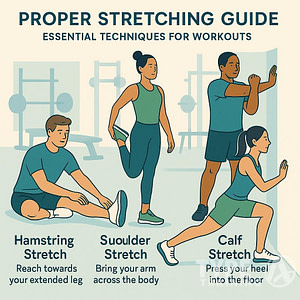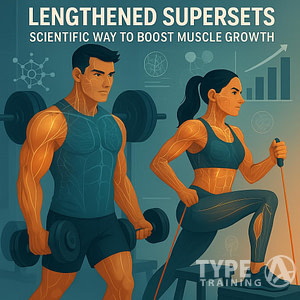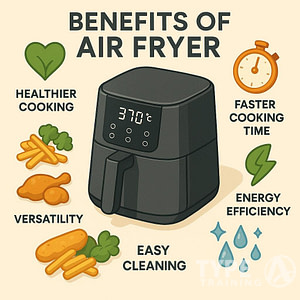When reaching for a drink to quench your thirst, water is often the go-to choice for optimal hydration. Yet, there are times when you might crave variety or additional nutrients that plain water doesn’t offer.
Staying hydrated is crucial. Even mild dehydration can affect your mood, concentration, and physical performance. Exploring other healthy drink alternatives to water can be both a pleasurable and practical way to meet your body’s demands, especially when water alone doesn’t appeal to your palate.
Many beverages can contribute to your daily fluid intake while providing extra health benefits. Drinks rich in vitamins, minerals, and electrolytes can support hydration and overall well-being.
Popular posts:
It’s essential to understand which options contribute to hydration without excessive sugars or additives that could detract from their health advantages. Choosing wisely can mean satisfying your thirst in a way that supports your body’s needs and your taste buds.
Nutritionists have highlighted several healthy drinks that can be hydrating alternatives to water. Drinks like coconut water are a natural source of essential electrolytes, which are vital for maintaining fluid balance, especially after exercise.
Moreover, incorporating decaffeinated herbal teas and infused waters can also add a comforting or refreshing twist to your hydration habits. By including these healthy options in your routine, you’re not just satisfying thirst; you’re enriching your diet with an array of beneficial nutrients.
Discovering Healthy Drink Options
When exploring alternatives to water for quenching your thirst, it’s vital to consider beverages that offer hydration alongside a nutritional boost. This section guides you through a range of wholesome drink choices that cater to both wellness and enjoyment.
Herbal Teas
Herbal teas, such as green tea, are packed with antioxidants and can be a refreshing low-caffeine choice. Varying from green to chamomile, they may support various aspects of health, including better sleep and stress reduction.
Fruit-Infused and Flavored Waters
Adding slices of fruits like lemon, lime, or cucumber to water can enhance flavor, reduce sugar content, and infuse your hydration routine with vitamins. This simple twist transforms plain water into a nutrient-rich, more palatable beverage.
Natural Fruit and Vegetable Juices
Juices made from fresh fruits and vegetables deliver vitamins and sometimes even fiber, especially if the pulp is retained. Opt for watermelon juice for hydration or a veggie blend for a low-sugar, nutrient-dense option.
Nutrient-Enriched Milk Alternatives
Plant-based milks, such as almond milk, can offer a lactose-free way to obtain calcium and vitamin D. Look for unsweetened versions to avoid added sugars while still garnering the wellness benefits.
Energizing Brews
Coffee, even when decaffeinated, provides antioxidants and polyphenols. Remember that how you consume your coffee – avoiding excessive whipped cream and sugar – can impact its health benefits.
Probiotic-Rich Beverages
Kombucha and kefir are fermented, probiotic-rich options for supporting gut health. These drinks contribute to your daily fluid intake while also providing beneficial bacteria to your diet.
Hydration with Sparkling Water
For those looking for variety without added sugars, sparkling water can be a fun choice. It often contains minerals and can come with a hint of natural flavor, providing a more exciting hydration experience with negligible sodium.
Specialty Health Drinks
Health-focused beverages like smoothies and coconut water are excellent for nutrient intake and hydration. Coconut water, in particular, is known for its high electrolyte content, making it ideal post-exercise. Choose smoothies made with whole fruits and vegetables to maximize health benefits.
Analyzing Nutritional Content
When selecting healthy drinks, it’s important to consider their nutritional content, especially the presence of electrolytes and minerals, which are vital for maintaining your body’s hydration and overall function.
Understanding Electrolytes and Minerals
Electrolytes, such as sodium, potassium, magnesium, and calcium, serve as essential minerals that conduct electricity when dissolved in your body’s fluids. They are crucial for a variety of bodily functions including muscle contractions and nerve signaling.
- Sodium: A key electrolyte that helps regulate fluid balance. However, moderation is key because high sodium intake can lead to increased
blood pressure . - Potassium: Vital for muscle function, heart health, and regulating fluid balance.
- Magnesium: Supports over 300 biochemical reactions in your body, including muscle and nerve function, and energy production.
- Calcium: While well-known for its role in bone health, it’s also important for proper functioning of the heart, muscles, and nerves.
Proper hydration isn’t just about quenching thirst; it’s about replenishing these minerals. You can find these electrolytes in various quantities in drinks like coconut water, known for higher potassium content, or in milk, which provides calcium and often has added vitamin D for better absorption.
If you engage in activities leading to significant sweat loss, it becomes even more important to choose drinks that can help restore your electrolyte balance. Beverages that contain a blend of these minerals can offer a more complete hydration solution than drinking water alone.
Considering Health Conditions
When selecting healthy drinks, it’s essential to consider how they might interact with any health conditions you have, particularly those affecting blood sugar levels, heart health, and inflammation. Your choices should support your overall well-being and align with your nutritional needs.
Balancing Blood Sugar
If you’re managing diabetes or aiming to maintain healthy blood sugar levels, it’s crucial to choose beverages that have a minimal impact on blood sugar spikes. Drinks with low or no added sugar can help in balancing blood sugar.
- For type 2 diabetes: Embrace drinks that have a negligible effect on blood glucose, such as herbal teas and certain types of milk alternatives, but always check the labels for added sugars.
- Blood pressure considerations: High
blood pressure patients should be cautious with caffeine intake and opt for low-sodium vegetable juices. - Hydration: Staying adequately hydrated is key, especially for maintaining
blood pressure and heart health. Coconut water is a good source of electrolytes and can be a hydrating choice, but be mindful of the sugar content.
Remember, always consult with your healthcare provider when making dietary changes, as they can tailor advice to your specific health conditions.
Emphasizing Low-Calorie Choices
When selecting beverages, it’s crucial for your health and waistline to opt for low-calorie choices. These options help you stay hydrated and refreshed without the added calories that can contribute to weight gain.
Avoiding Excess Sugars
To minimize your calorie intake from drinks, focus on beverages that are sugar-free or contain natural sweeteners. Sugary drinks like soda are high in calories and can contribute to various health issues if consumed in excess.
- Black Coffee: A choice recommended by experts, black coffee is a low-calorie option as long as you skip the added sugar and cream. Remember that moderation is key, as too much caffeine can lead to restlessness or anxiety.
- Tea: Green tea or herbal teas without added sugars provide a calorie-friendly alternative and can offer additional health benefits like antioxidants.
Italics are used for emphasis, and bullet points make the key drink options clear and distinct. The content stays within the defined scope, avoids exaggerations, and conveys information confidently and knowledgeably.
Highlighting Functional Benefits
When considering healthy drinks beyond water, it’s vital to examine how they can functionally enhance your well-being. Beverages that offer immune support or aid in digestion not only quench your thirst but provide specific health advantages.
Boosting Immunity
If you’re aiming to strengthen your immune system, look for drinks abundant in Vitamin C and antioxidants. These components are integral in combating oxidative stress and reducing inflammation.
A great choice is green tea, known for its high antioxidant levels that can bolster your immunity. Incorporating a cup of green tea into your daily regimen could serve as a protective, hydrating ally against environmental stressors.
Supporting Digestion
To promote healthy digestion, beverages rich in fiber or containing probiotics can be exceptionally beneficial.
A standout in this category is kombucha, a fermented tea packed with gut-friendly bacteria. Drinking kombucha can contribute to a balanced gut microbiome, which is crucial for optimal digestive health.
Additionally, selecting drinks like coconut water, which provide essential minerals and hydration, helps maintain digestive function and fluid balance in your body.
Considering Lifestyle and Activity
When selecting a healthy drink, it’s vital to consider your lifestyle and level of physical activity. Your body’s needs can significantly vary depending on how active you are throughout the day.
Options for Active Individuals
Hydration: If you’re frequently engaging in intense workouts or activities that cause substantial sweating, maintaining proper hydration is crucial.
During prolonged exercise, you not only lose water but also electrolytes. Beverages like coconut water naturally replenish your body’s electrolytes, particularly potassium, making it an excellent choice for post-exercise recovery.
Energy Drinks: Not all energy drinks are created equal.
Seek out options with natural, low-calorie ingredients that provide a caffeine boost without the crash. Green tea is a great example, as it offers a moderate amount of caffeine as well as antioxidants to support overall health.
It may aid in improving brain function, which could be beneficial if your lifestyle demands mental alertness as well as physical energy.
Protein: Beverages containing protein can serve as a substantial post-workout fuel.
Protein helps repair and build muscles that have been exerted during physical activity. A glass of milk or a plant-based milk alternative enriched with pea or rice protein can be precisely what your body needs after hitting the gym.
Remember, what you drink should align with the demands you place on your body. If you lead an active lifestyle, choose drinks that contribute to hydration, energy, and recovery.
Frequently Asked Questions
When exploring healthy beverage options, you may have specific questions related to your age, health goals, or personal preferences. This section aims to address some common inquiries with concise, informed responses.
Which health drink is best for adults?
For adults seeking healthy drinks, options such as green tea and black tea are excellent as they contain antioxidants.
Herbal teas also offer a variety of health benefits without the caffeine.
What are some healthy drinks for kids?
Healthy drinks for kids include pure fruit juices in moderation and smoothies made with whole fruits and vegetables.
Milk and plant-based milk alternatives fortified with calcium and vitamin D can also be nutritious for children.
What are the top 5 healthiest drinks?
The top 5 healthiest drinks, beyond water, include green tea, herbal teas, black tea, coconut water, and vegetable juices.
These beverages offer hydration along with a range of vitamins, minerals, and antioxidants.
What can I drink instead of water for hydration?
To stay hydrated aside from water, coconut water is a great option, as it is rich in electrolytes.
Herbal teas and broths are alternatives that can help maintain fluid balance in the body.
Which cool drink is good for health?
Cool drinks that are good for your health include chilled herbal teas, freshly squeezed fruit juices without added sugars, and homemade smoothies.
These options are not only refreshing but also provide nutritional benefits.
How can I substitute water with healthy drinks for weight loss?
For weight loss, consider substituting water with drinks that have few calories and can help to feel full, such as herbal teas or vegetable juices.
These can reduce overall calorie intake while still providing essential hydration.












